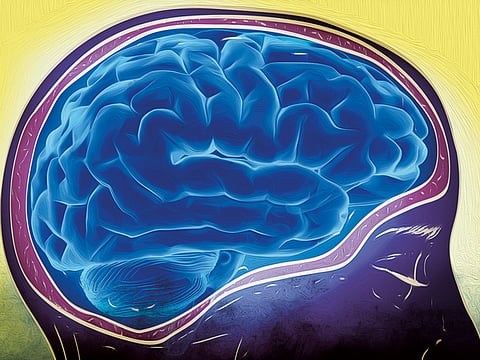How forgetting allows you to remember
A new study suggests that being forgetful is the brain’s way of sorting important details from unimportant ones — which improves our overall memory and helps us make better decisions

We all complain about our memory. More precisely, we deplore its limited storage and recall capabilities. But how often do you hear someone complain about their insufficient forgetfulness?
Never. And yet!
We should all thank our ability to forget. While a good memory certainly allows us to retain the essential parts of our knowledge and experiences, it must also be able to erase what is extraneous, useless, bulky.
“It’s important that the brain forgets the unimportant details to focus on what really matters in our daily decision-making,” says Blake Richards.
Along with fellow University of Toronto researcher Paul Frankland, Richards is the co-author of an article published in the prestigious Neuron magazine on June 21 that explores the fundamental benefits of forgetting.
Though the cerebral processes involved in forgetting have been long neglected by researchers, recent studies have now shown that the neural mechanisms behind the erasure of memories are distinct from those that store them. For example, how are memories stored in the brain?
Professor Robert Jaffard, from the French National Center for Scientific Research (CNRS) at the University of Bordeaux, explains that it is thanks to the networking of the activated neurons, together with the data to be memorised.
“But since the first encoding of memory is unstable, in order to leave even a trace of memory, these networks must be consolidated,” Jaffard says. This consolidation may result from the rereading of a lesson, for example.
As for the erasure mechanisms, there are two different types. The first makes the most sense: the weakening of the synapses in the networks that form the memory traces.
The second, however, is counterintuitive: It comes from the formation of new neurons from stem cells. Paul Frankland’s team was at the origin of this discovery in 2013, using mice.
In fact, according to Jaffard, the formation of new neurons can have opposite effects, depending on when they are produced. “When encoding a memory, the time of a new neurone’s development greatly facilitates its memorisation.”
Afterward, it becomes the opposite, as new neurons integrate themselves into the circuit of the hippocampus of the brain where the memory’s trace is already stored. They overload the circuit and weaken it.
“This process explains why children, who form many new neurons, forget so easily,” the two authors point out in their Neuron article.
It may seem surprising that the brain devotes so much energy to creating neurons whose only function is to weaken certain memories. But this is because it is indeed a vital purpose.
The study shows this using an unexpected approach: Artificial neural networks. When these systems are simplified, as a result of “forgetting”, they become more efficient in decision-making.
Forgetting also helps us make good decisions. It does this in two ways. On the one hand, it gets rid of the parasitic information that hinders the way we adapt to new situations.
“If you try to navigate through the world and your brain is drowned by multiple memories that obstruct your view, you cannot make informed decisions,” said Richards.
On the other hand, eliminating superfluous memories helps us to generalise events from past to present. Thus a good memory is a memory which prioritises and selects.
“Deep sleep plays a key role in this selection. It allows sorting between what will be archived and what will be erased,” said Jaffard.
It is crucial to understand that human memory is the direct opposite of a magnetic audio tape that records everything that passes through it. A memory is not a faithful archive of the past.
“In everyday life, that would be a disaster,” said Jaffard. His article cites the case of a famous patient of the neuropsychologist Alexandre Luria (1902-1977). The patient, “S”, was a journalist with a phenomenal memory, which he associated with different senses.
This hypermnesia was a poisoned gift and a real life handicap. It prevented the man from understanding abstract concepts or even recognising a face, since he would perceive all the changes to a face from one meeting to the next, having retained the precise expressions linked to passing moods.
Because he was constantly accumulating memories on top of memories, the man essentially could not think. On a daily basis, he was unable to extract relevant data. His only way to adapt to life was by projecting himself into the future.
This inability to forget, hypermnesia, can be triggered by certain devastating events.
“Post-traumatic stress is a hypermnesia of the trauma experienced,” said professor Francis Eustache, a neuropsychologist and director of a unit at the French National Institute of Health and Medical Research of the University of Caen.
“The notion of forgetting is not so simple,” says Eustache. In our memory, some information is done away with very quickly and permanently. Others are slower to fade. But are they ever got rid of completely?
Some memories, often ones that are less important or solicited, retreat to the background. But they can be recalled. “All memory is a reconstruction evolving over time,” says the researcher. “It is a changing synthesis of the world, of ourselves and of others.”
— Worldcrunch, 2017/New York Times News Service
Florence Rosier is a columnist and writes for several international media organisations.



